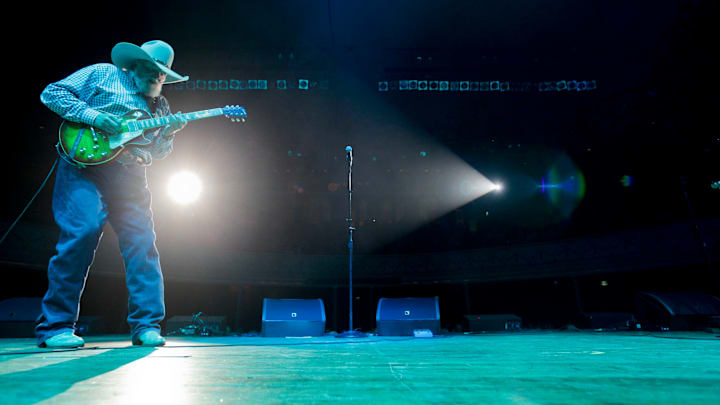"The Devil Went Down To Georgia" by the Charlie Daniels Band tells a tale that, at this point in history, most assume is as old as time. When the Devil visits the Peach State, a little behind on stealing souls, he hits upon the idea of challenging a young man to a fiddle-playing contest, with the young man's soul as a wager. The young man competes for his soul and ultimately humiliates the prince of darkness.
The story has been parodied and referenced so many times that you might think it's based on an ancient myth or antediluvian trope, but the truth is it comes from a country song that's not even as old as the Star Wars trilogy.
...Or perhaps it's a little older. Charlie Daniels has stated that it may be based on a poem that he vaguely remembered from high school, "The Mountain Whippoorwill" by Stephen Vincent Benét from 1925. But not only is "The Mountain Whippoorwill" not exactly a cultural icon, it's quite frankly hard to say what it's about. Charlie Daniels' interpretation of his vague recollection made for a totally new story.
The Devil Went Down To Georgia is the devil's music for middle America
Heavy metal cops a lot of flack for being the devil's music, but the devil has a long history in pop music. Ever since Robert Johnson made his Faustian bargain at the crossroads near Dockery Plantation, popular music has been the Devil's realm. Every modern genre has dabbled with the dark side, a fact that moral panics tend to omit.
One fact about The Devil Went Down To Georgia sums this up perfectly is that there exists a censored version. When Johnny defeats the devil, he exclaims "Cause I told you once, you son of a b****, I'm the best that's ever been," but the censored version changes the line to "son of a gun." But the censored version is largely ignored, even on AOR mainstream radio.
The freedom from censorship is the backbone of the the freedom that is music. Songs like The Devil Went Down To Georgia bring that freedom to even the most restrictive corners of the soundscape.
